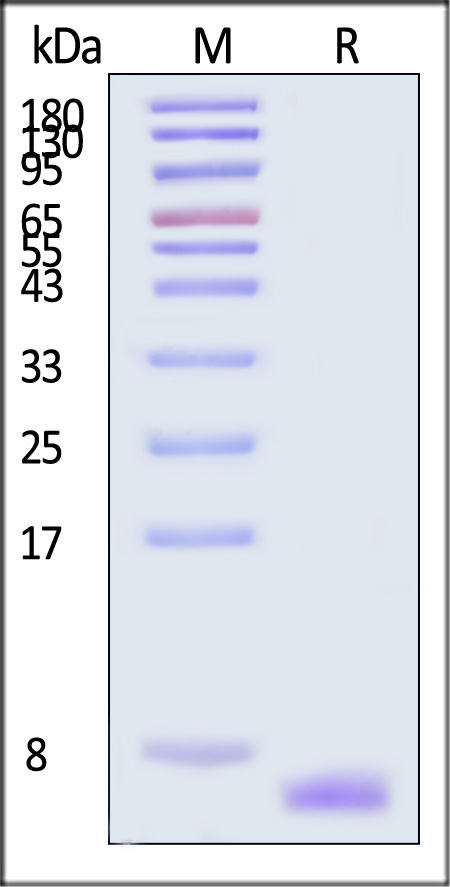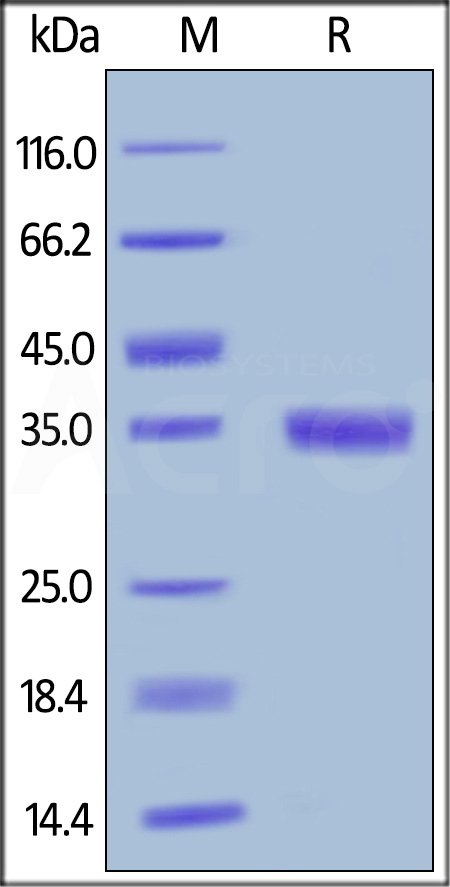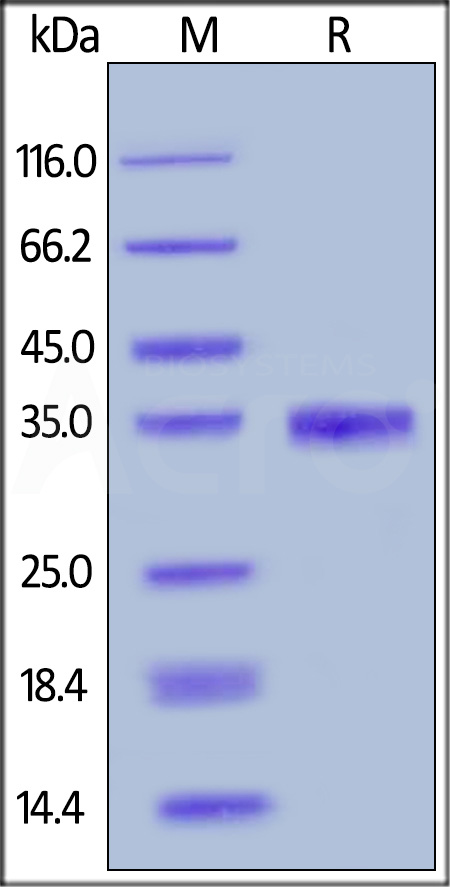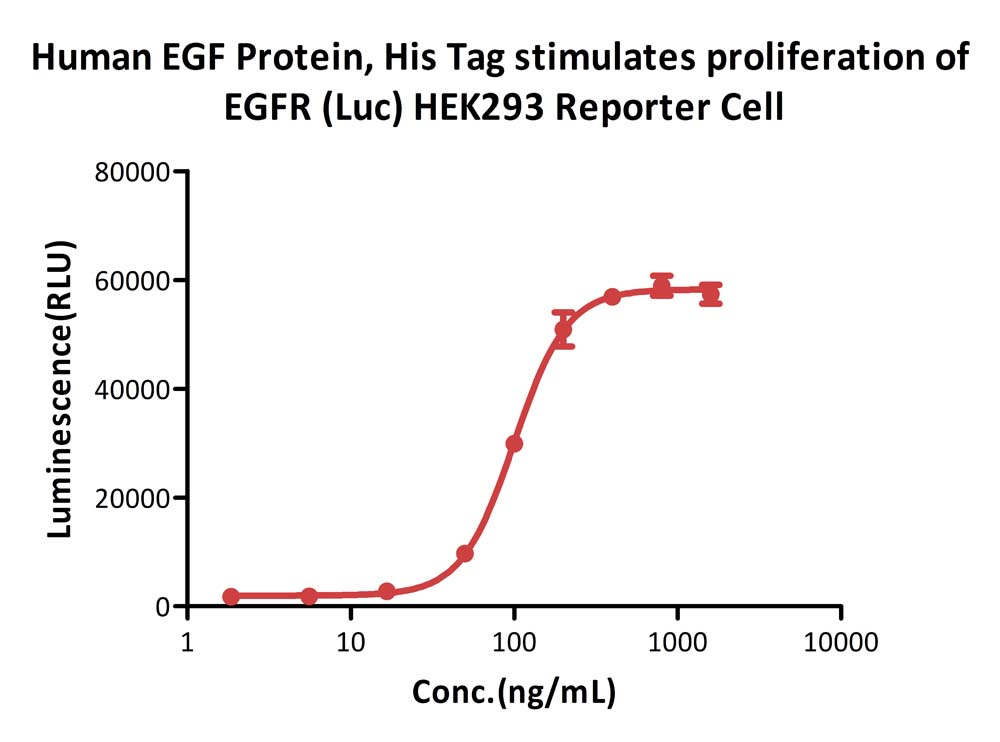 Limited Edition Golden Llama is here! Check out how you can get one.
Limited Edition Golden Llama is here! Check out how you can get one.  Limited Edition Golden Llama is here! Check out how you can get one.
Limited Edition Golden Llama is here! Check out how you can get one.
 Offering SPR-BLI Services - Proteins provided for free!
Offering SPR-BLI Services - Proteins provided for free!  Offering SPR-BLI Services - Proteins provided for free!
Offering SPR-BLI Services - Proteins provided for free!
 Here come GMP Grade Cytokines!Free Sample is available!
Here come GMP Grade Cytokines!Free Sample is available!  Here come GMP Grade Cytokines!Free Sample is available!
Here come GMP Grade Cytokines!Free Sample is available!
| 제품번호 | 종 | 제품 설명 | 구조 | 순도 | 특징 |
|---|---|---|---|---|---|
| EGF-H5117 | Human | Human EGF Protein, premium grade |  |

|
|
| CEA-C080 | Human | ClinMax™ Human EGF ELISA Kit | |||
| EGF-H52H3 | Human | Human EGF Protein, His Tag |  |

|
|
| EGF-M5265 | Mouse | Mouse EGF Protein, Fc Tag |  |

|
|
| EGF-H525b | Human | Human EGF Protein, Mouse IgG2a Fc Tag |  |

|

Human EGF Protein, premium grade (Cat. No. EGF-H5117) stimulates EGFR (Luc) HEK293 Reporter Cell. The specific activity of Human EGF Protein, premium grade is>8.00 x 10^5 IU/mg, which is calibrated against human EGF WHO International Standard (NIBSC code: 91/530) (QC tested).

Human EGF Protein, His Tag (Cat. No. EGF-H52H3) stimulates proliferation of EGFR (Luc) HEK293 Reporter Cell. The specific activity of Human EGF Protein, His Tag is > 3.00 X 10^5 IU/mg, which is calibrated against human growth factor EGF WHO International Standard (NIBSC code: 91/530) (QC tested).

Captured Mouse EGF R, His Tag (Cat. No. EGR-M5224) on CM5 Chip via anti-His antibody can bind Mouse EGF, Fc Tag (Cat. No. EGF-M5265) with an affinity constant of 5.44 nM as determined in SPR assay (Biacore T200 ) (Routinely tested).
| Name | Research Code | Research Phase | Company | Indications | Clinical Trials |
|---|---|---|---|---|---|
| Recombinant anti-EGFR chimeric monoclonal antibody (Shanghai CP Guojian) | CPGJ-602; 602; CPGJ602; CPGJ 602 | Phase 2 Clinical | Sunshine GuoJian Pharmaceutical (Shanghai) Co Ltd | Colorectal Neoplasms | Details |
| Recombinant anti-EGFR chimeric monoclonal antibody (Shanghai CP Guojian) | CPGJ-602; 602; CPGJ602; CPGJ 602 | Phase 2 Clinical | Sunshine GuoJian Pharmaceutical (Shanghai) Co Ltd | Colorectal Neoplasms | Details |
This web search service is supported by Google Inc.
